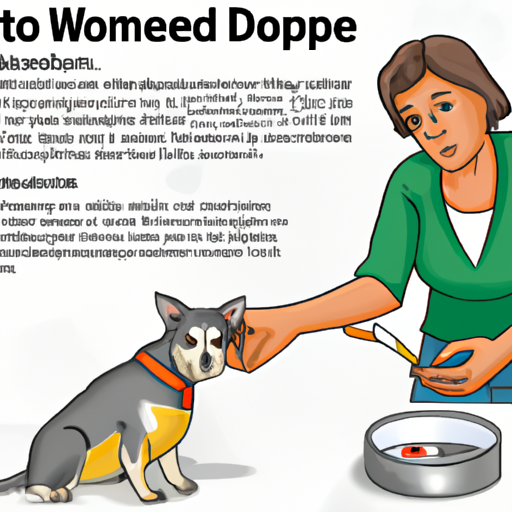As a caregiver, your primary responsibility is ensuring the health and well-being of your loved ones. If you’re a dog owner, this includes understanding the importance of deworming your furry friend. This article will guide you through the process of deworming your dog at home, helping you save on expensive vet bills while still providing the best care for your pooch.
H2: Understanding the Need for Deworming
Deworming is not a luxury but a necessity. Worms can infiltrate a dog’s system and wreak havoc, leading to weight loss, diarrhea, vomiting, and in severe cases, death. Common types of worms include heartworms, roundworms, tapeworms, and hookworms. You should deworm your dog regularly to prevent worm infestation and ensure their optimal health.
H2: Identifying Signs of Worm Infestation in Dogs
Pay close attention to your dog’s behavior and physical condition. Some of the telltale signs of worm infestation include:
- Changes in appetite
- Dull coat
- Visible worms or eggs in your dog’s feces
- Coughing, especially in the case of heartworms
H2: Choosing the Right Deworming Product
There are many deworming products available on the market. It is essential to choose a product that is specifically designed for your dog’s age, weight, and type of worm infestation.
Here’s a simple table to guide you:
| Age of Dog | Appropriate Dewormer |
|---|---|
| Puppy (under 6 months) | Fenbendazole |
| Adult Dog | Ivermectin, Milbemycin |
H2: Administering the Deworming Treatment
Now that you’ve chosen the right product, follow these steps:
- Weigh your dog to determine the correct dosage.
- Read the instructions on the deworming product carefully.
- Administer the dewormer orally, as most products are designed to be ingested.
Remember, it’s always best to consult with your vet before starting any new treatment.
H2: Frequently Asked Questions (FAQs)
Q: How often should I deworm my dog?
A: Generally, adult dogs should be dewormed every 3 months.
Q: Can I deworm a pregnant dog?
A: Yes, but only with a vet’s supervision.
Q: What should I do if my dog shows adverse reactions to the dewormer?
A: Consult your vet immediately.
Q: Is deworming necessary if my dog stays indoors most of the time?
A: Yes. Worm eggs can be brought into the house on shoes or clothing, so no dog is completely safe from worm infestation.
Remember, it’s your responsibility as a caregiver to ensure the health and happiness of your furry friend. Regular deworming is a vital part of this responsibility.



